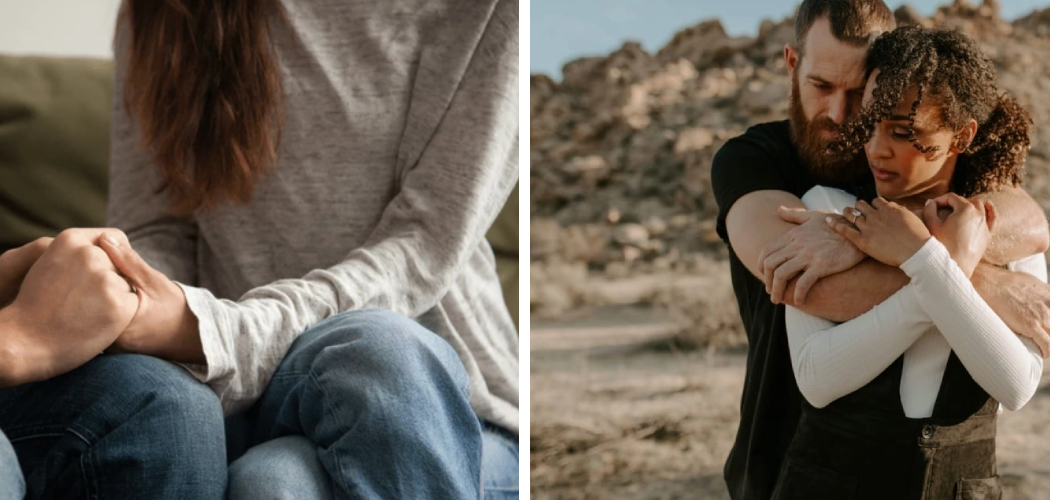Relationships are as important for a person as toxic relationships are harmful. I have seen up close how some people thrive and shine in relationships, while others have their lives destroyed by them. One of the bravest actions a person can take is to leave a toxic relationship.

To walk away from someone who, despite causing harm, may have been an important part of your life requires a lot of strength. But healing doesn’t happen in a straight line even after you leave. It requires you to process your emotions, reflect on yourself, and make an intentional effort to reestablish your sense of self.
We will discuss how to recover from a toxic relationship and offer concrete steps for emotional development, self-care, and healing in this article. This advice is meant to help you on your way to recovery, whether you just broke up or are still figuring out how the relationship affected you.
What is a Toxic Relationship?
It is essential to comprehend what constitutes a toxic relationship prior to beginning recovery. In a toxic relationship, one or both partners’ actions cause emotional, mental, or physical harm to the other. Typical symptoms include:
- Manipulation: To get what they want, one partner manipulates the other, frequently resulting in confusion and guilt.
- Control:Over Controlling the other person’s decisions, actions, or behaviors is excessive.
- Verbal or Physical Abuse: Harmful verbal and physical language are all examples of this.
- Emotional Drain: Constant criticism, jealousy, or emotional blackmail that leads to chronic stress.
- Isolation: It’s possible that the toxic partner will try to cut the other person off from friends and family, cutting them off from support networks.
Relationships that are toxic can cause you to lose your sense of self, damage your self-esteem, and leave you with emotional scars that last a lifetime. It is possible to recover from these effects, but it will take time and effort.
1. Allow Yourself to Grieve

A normal part of recovery is grieving the end of any relationship, even one that was toxic. It is essential to acknowledge that there were probably times when things went well in addition to the bad ones. Give yourself permission to experience sadness, rage, confusion, and possibly even regret. Experiencing these emotions too quickly or ignoring them can impede healing and prolong recovery.
How to Process Your Emotions:
- Journaling: Write down your feelings and thoughts. It can assist you in releasing buried feelings and making sense of your experiences.
- Cry if You Need To: Trying to avoid feeling sad only makes it worse. Allow yourself to weep and feel the situation’s weight. It’s a way to let go of your emotions.
- Talk to Someone You Trust: You can use a therapist, friend, or family member to help you process your feelings. Clarity can sometimes be gained by simply speaking your thoughts out loud.
2. Rebuild Your Support System
You often feel alone and unsupported when you are in toxic relationships because you are cut off from your loved ones. It is absolutely necessary for you to reconnect with your support network now that you are out of that environment.
You can feel more grounded and reminded of your self-worth by contacting friends and family. Put yourself in the company of people who care about you and want the best for you.
Reconnecting with Loved Ones:
- Call or Meet Up with Friends: Start reestablishing any connections that might have become strained during the relationship.
- Join Support Groups: Even your closest friends and family may not always fully comprehend what you’re going through. A sense of community and shared experience are provided by toxic relationship survivors’ support groups.
- Therapy: A therapist can give you a safe place to talk about your experiences and help you get back on your feet.
3. Set Healthy Boundaries

When you leave a toxic relationship, it’s important to set clear boundaries, especially if you have to keep in touch with your ex (for example, if they have kids). To safeguard your emotional well-being and avoid falling back into the same unhealthy patterns, boundaries are essential.
Tips for Setting Boundaries:
- Limit Communication: Go “no contact” with your ex if you can. Keep it brief and neutral if communication is necessary, such as for co-parenting.
- Block or Unfollow on Social Media: Moving on can be more difficult if you see your ex’s social media posts. By unfollowing or blocking them, you can give yourself time to heal.
- Avoid Rehashing the Past: Avoid discussing the relationship or arguing about unresolved issues. Closure frequently originates within rather than from the other person.
4. Practice Self-Care and Self-Love
Your self-esteem and well-being will suffer as a result of toxic relationships. It is time to give self-care and cultivate a sense of self-love a higher priority now that you are no longer in that harmful environment. This means taking care of your emotional wounds as well as your physical health.
Self-Care Ideas:
- Exercise: Endorphins are released during physical activity, which can help you feel better and less stressed.
- Sleep and Nutrition: Your mental and physical health can greatly benefit from getting enough sleep and eating a well-balanced diet. Concentrate on adhering to a healthy routine.
- Hobbies and Passions:You might have neglected your hobbies during the relationship. Get back into them. You’ll be able to rediscover your identity and passion by engaging in activities you enjoy.
- Affirmations: Make positive self-talk a habit. Every day, remind yourself of your value and resilience.
5. Reflect on the Relationship and Learn from It

Moving on is only one part of healing; learning from the experience is another. To better comprehend what went wrong and how it affected you, think back on the toxic relationship. This self-reflection can be difficult, but it is necessary to prevent future recurrence of the same patterns.
Key Questions for Self-Reflection:
- What Red Flags Did I Ignore? Did you dismiss any early warning signs? You can avoid similar situations in future relationships by identifying them.
- What Were My Boundaries, and Did I Uphold Them? Consider the boundaries you established—or failed to establish—in the relationship. For better connections in the future, it is essential to learn how to uphold them.
- How Did I Lose Myself? Consider the ways in which you might have neglected your wants, values, and needs in the relationship. You’ll be able to regain your sense of self with this insight.
6. Rebuild Your Sense of Identity
Your identity is frequently stripped away by toxic relationships. You might feel like you’ve lost yourself or are no longer connected to who you were before the relationship. Restoring your sense of self—your values, interests, and strengths—is an essential part of recovery.
Steps to Rebuild Your Identity:
- Activities and old friends can be reconnected: Do things that made you happy before the relationship started. Reconnect with friends who might have lost touch.
- Find New Passions: Find a new interest or hobby that goes along with your personal development. In this new phase of your life, trying something new can help you redefine who you are.
- Highlight Your Advantages: Make a list of your good qualities, abilities, and strengths. This practice can help you remember your inherent worth and boost your self-esteem.
7. Seek Professional Help

Professional assistance can provide more in-depth guidance during the healing process, despite the importance of self-care and family support. Psychologists, counselors, and therapists focus on helping people recover from trauma and toxic relationships. You can use the tools they provide to rebuild your self-esteem, deal with emotional pain, and learn better ways to have relationships.
Benefits of Therapy:
- Safe Space for Healing: Therapy offers a judgment-free space to talk about your experiences and emotions.
- Tools for Coping: A therapist can teach you coping strategies for anxiety, depression, and trauma related to the relationship.
- Identifying Patterns: Therapy helps you recognize and break patterns of toxic relationships, enabling you to move forward into healthier relationships.
8. Give Yourself Time
Recovering from a toxic relationship takes time. It is a gradual process that requires self-compassion and patience. It is acceptable that there will be good days and bad days. Before starting a new relationship, give yourself ample time to recuperate fully. Concentrate on personal development and laying a solid foundation for your happiness in the future.
9. Embrace the Future with Optimism
It’s normal to be concerned about possible relationships in the future, but it’s important to approach them with optimism. Believe that you have matured and strengthened as a result of your previous experiences. In the future, you can make connections that are better for you and more fulfilling if you have the right mindset.
Moving Forward:
- Take Things Slow: Don’t rush into a new relationship. Take the time to get to know yourself and any potential partner.
- Practice Open Communication: In future relationships, be transparent about your needs, boundaries, and expectations.
- Trust Yourself: Trust your instincts and don’t be afraid to walk away from relationships that don’t serve you.




